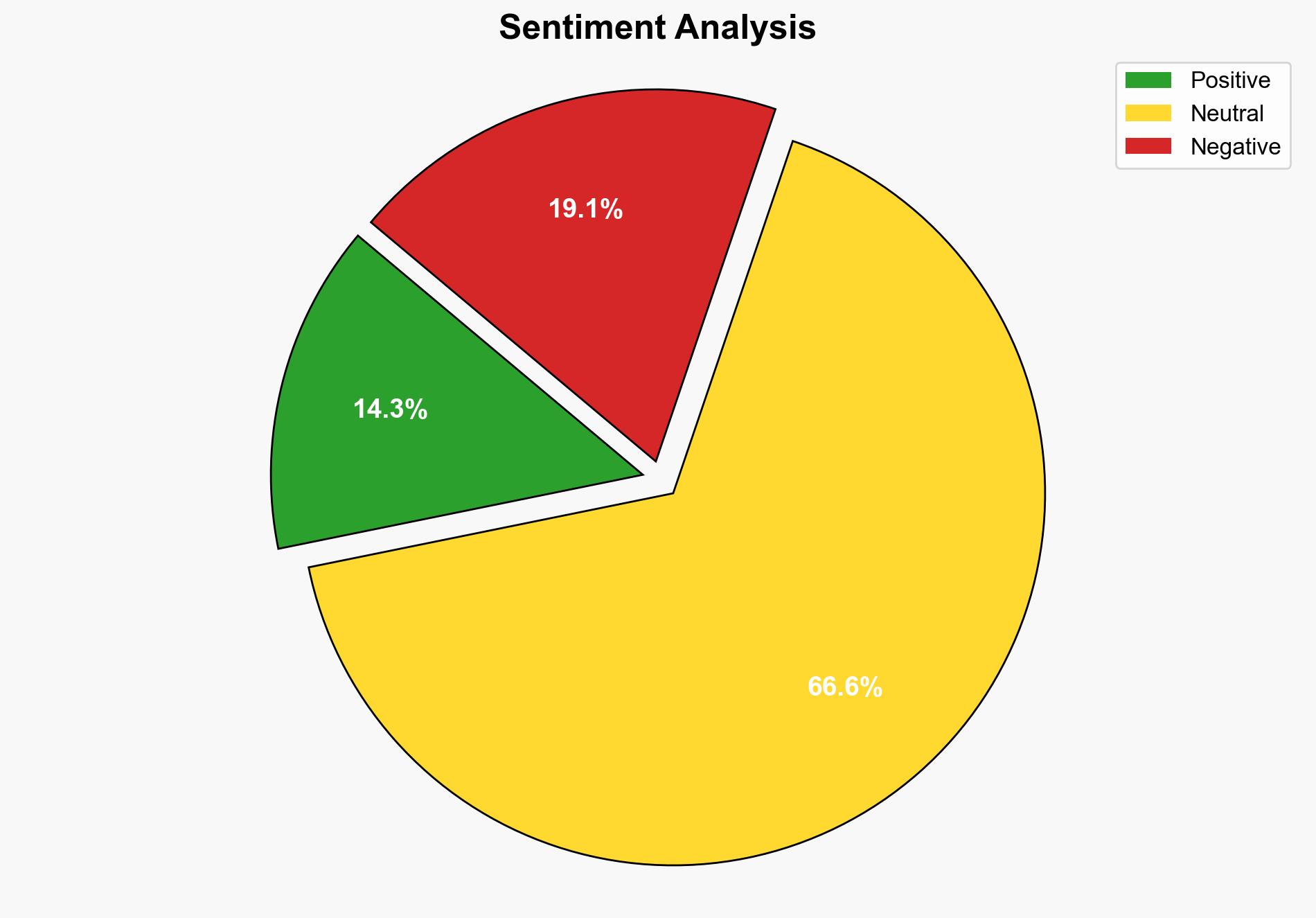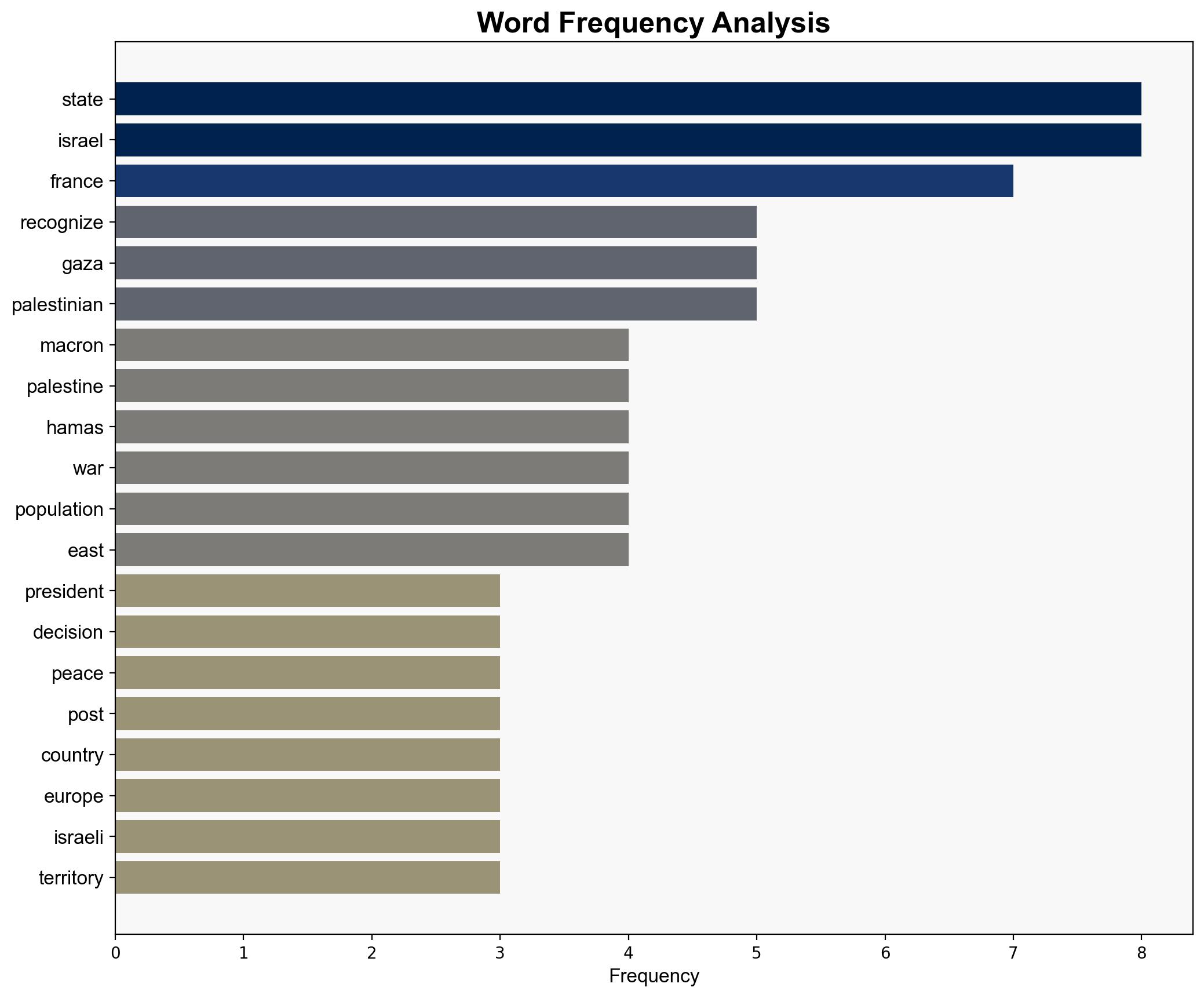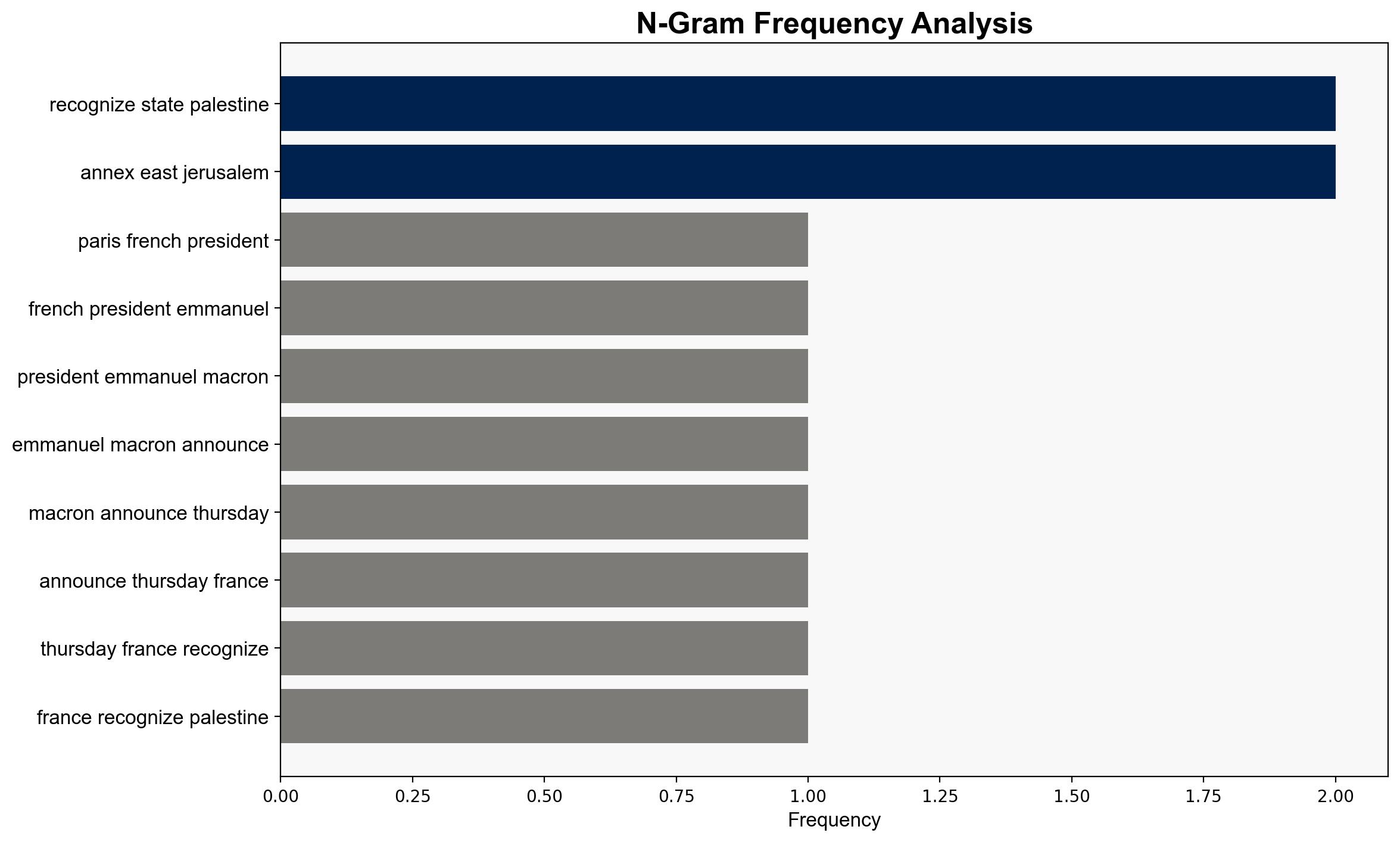French President Macron says France will recognize Palestine as a state – NBC News
Published on: 2025-07-24
Intelligence Report: French President Macron says France will recognize Palestine as a state – NBC News
1. BLUF (Bottom Line Up Front)
The strategic judgment is that France’s recognition of Palestine as a state is primarily a diplomatic maneuver to assert influence in the Middle East and respond to domestic and international pressures. The most supported hypothesis is that this decision is aimed at balancing France’s internal demographic tensions and enhancing its role in international diplomacy. Confidence level: Moderate. Recommended action: Monitor France’s diplomatic engagements and regional reactions to anticipate shifts in Middle Eastern alliances.
2. Competing Hypotheses
Hypothesis 1: France’s recognition of Palestine is a strategic move to increase its influence in the Middle East by positioning itself as a mediator in the Israeli-Palestinian conflict. This aligns with Macron’s historical commitment to sustainable peace and addresses growing frustration with Israel’s actions in Gaza.
Hypothesis 2: The decision is primarily driven by domestic considerations, aiming to appease France’s large Muslim population and mitigate internal tensions exacerbated by the Middle East conflict. This recognition serves as a symbolic gesture to address domestic political pressures rather than a substantive foreign policy shift.
Using Analysis of Competing Hypotheses (ACH), Hypothesis 1 is better supported due to Macron’s consistent international engagement and France’s historical role in Middle Eastern diplomacy.
3. Key Assumptions and Red Flags
– Assumption: France’s recognition will lead to increased diplomatic leverage in the Middle East.
– Red Flag: The potential for this decision to exacerbate tensions with Israel and its allies, particularly the United States.
– Blind Spot: The reaction of other European countries and their influence on EU foreign policy.
– Cognitive Bias: Confirmation bias may lead analysts to overemphasize France’s historical diplomatic role without considering current geopolitical shifts.
4. Implications and Strategic Risks
– Potential for increased diplomatic tensions between France and Israel, possibly affecting trade and security cooperation.
– Risk of domestic unrest in France if the decision is perceived as favoring one demographic over another.
– Geopolitical risk of alienating the United States and other allies who oppose unilateral recognition of Palestine.
– Economic implications if regional instability affects global markets, particularly energy supplies.
5. Recommendations and Outlook
- Monitor regional reactions, especially from Israel, the United States, and other EU countries, to assess shifts in alliances.
- Engage in dialogue with key stakeholders to mitigate potential backlash and ensure France’s diplomatic efforts are perceived as balanced.
- Scenario Projections:
- Best Case: France successfully mediates renewed peace talks, enhancing its global diplomatic standing.
- Worst Case: Escalation of regional tensions leads to broader conflict and economic instability.
- Most Likely: France’s recognition leads to temporary diplomatic friction but ultimately contributes to renewed dialogue.
6. Key Individuals and Entities
– Emmanuel Macron
– Mahmoud Abbas
– Marco Rubio
7. Thematic Tags
national security threats, regional focus, diplomatic strategy, Middle East conflict





